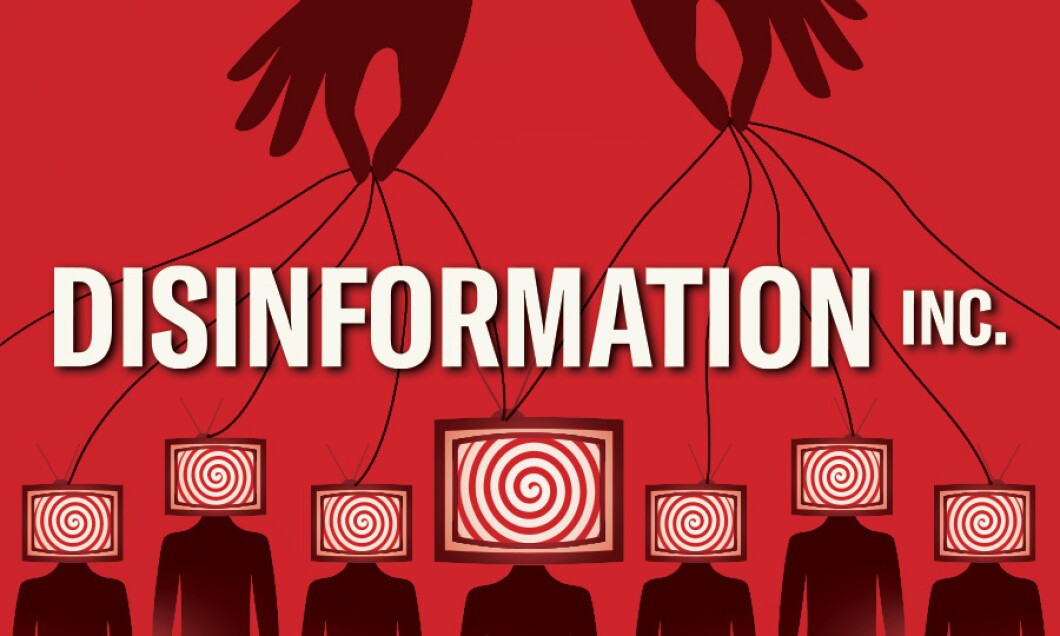
This is part of a Washington Examiner series on self-styled “disinformation” tracking groups that are blacklisting and trying to defund conservative media outlets. Here is where you can read other stories in the series.
A publicly funded research lab at the University of Washington, which is heavily backed by taxpayer dollars, partnered with a “disinformation” tracking group that is blacklisting conservative news to fight alleged COVID-19 “disinformation” online.
The State Department-backed Global Disinformation Index demanded groups cut ties with media outlets that boosted the coronavirus “lab leak” theory in 2020, which the Energy Department now says is the most likely origin of the virus. That same British group, which has come under fire for alleged censorship, teamed up in 2020 with the University of Washington for a COVID-19 “disinformation” research project that sought to “classify news articles according to their risk of containing disinformation about the coronavirus in real time,” according to records reviewed by the Washington Examiner.
DISINFORMATION INC: GOVERNMENT-BACKED GROUP TRIED TO PUNISH SITES BOOSTING COVID LAB LEAK THEORY
“Based on GDI’s track record, it’s certainly alarming that a public institution would work with this shady organization to censor what information the public has access to about COVID,” Justin Goodman, vice president of advocacy and public policy at the White Coat Waste Project, a federal spending watchdog, told the Washington Examiner. “GDI’s work to dismiss and discredit the lab leak hypothesis has set back COVID origin investigations by three years and may contribute to us never determining how the pandemic started.”
GDI, which has been feeding conservative website blacklists to advertising companies and scored $665,000 combined between 2020 and 2021 from two State Department-funded entities, has slammed Republican lawmakers who said COVID-19 may have emerged from a lab. The Energy Department recently determined that based on classified intelligence, the virus most likely did emerge from a lab, the Wall Street Journal reported.

In 2020, GDI published numerous reports on what it considered to be COVID-19 “disinformation” online. That same year, two then-GDI employees, Lead Data Scientist Maggie Engler and Senior Researcher Lucas Wright, led a project dubbed “Identifying Coronavirus Disinformation Online” through the University of Washington’s eScience Institute, a data research body.
The institute is bankrolled by government agencies including the National Institutes of Health, the Department of Energy, NASA, and the National Science Foundation, according to its website. The NSF, for instance, granted the institute and linked University of Washington entities over $1.5 million between 2020 and 2023, according to government records.
Washington’s project aimed to use GDI data to further “brand safety” initiatives and develop a “processing model” that evaluates websites based on their vision of what constitutes disinformation and misinformation, according to its website. GDI has said the 10 “riskiest” news outlets are the American Spectator, Newsmax, the Federalist, the American Conservative, One America News, the Blaze, the Daily Wire, RealClearPolitics, Reason, and the New York Post.
“Our project is supported by the GDI’s resources to train a machine to identify coronavirus disinformation risks in news articles,” George Hope Chidziwisano, a then-Michigan State University doctoral candidate, said during the group’s August 2020 project presentation. “Our data was scraped from news websites across the internet. These articles were written between May and June 2020. The data specifically contained over 28,000 articles about coronavirus.”
It’s unclear whether the project specifically took aim at conservative websites, including the Washington Examiner, that GDI has flagged as peddling alleged “disinformation.” The project had the goal of developing “a tool” that could inform advertisers “to pull their ads from disinformation websites with greater specificity than relying on blocking keywords,” according to its website.
The project’s website also cited a July 2020 GDI graphic alleging that “conspiracy theories on origin of the pandemic” and anti-World Health Organization language promote “harm to specific groups.” The graphic claimed “lockdown protests” amount to “harm to public order,” among other sentiments.
“There are serious constitutional concerns with a government agency, including a state government agency or a state university, participating or funding a project specifically intended to suppress the free speech of American citizens,” Michael Chamberlain, director of Protect the Public’s Trust, an ethics watchdog group, told the Washington Examiner.

“The fact that an organization involved has been accused of targeting outlets based upon their ideological views ramps up the concerns by orders of magnitude,” Chamberlain said. “Agents of the government putting their thumbs on the scales of contentious issues, whether directly or through surrogates, is characteristic of banana republics. That it appears to be happening here should trouble all of us.”
The University of Washington is leaning heavily into efforts to track alleged disinformation online and has received grants for this purpose from several agencies, including the Department of Defense, according to federal grant records. It pocketed over $797,000 from the NSF in 2021 to develop “rapid-response frameworks for mitigating online disinformation,” according to records.
The NSF-backed project was listed as being led by Kate Starbird. The University of Washington professor has come under fire for sitting on a Department of Homeland Security advisory committee, through the Cybersecurity and Infrastructure Security Agency, that has demanded the agency shape the “information ecosystem” in relation to social media content moderation, according to the Intercept.
Starbird also leads the University of Washington’s Center for an Informed Public, which seeks to “translate research about misinformation and disinformation” into public policy, according to its website. The DHS committee she has sat on has included the likes of ex-Twitter general counsel Vijaya Gadde, University of Pittsburgh Chancellor Patrick Gallagher, and Austin, Texas, Mayor Steve Adler, a Democrat.
CLICK HERE TO READ MORE FROM THE WASHINGTON EXAMINER
“It seems unwise for a public institution to continue to collaborate with an organization that’s spreading disinformation harming public health and national security,” Goodman told the Washington Examiner.
The University of Washington’s eScience Institute did not return a request for comment.






